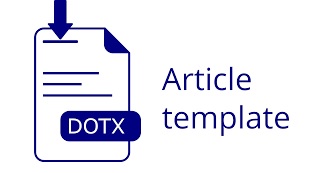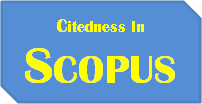Optimalisasi Faktor e-Government Berkelanjutan di Kementerian Sekretariat Negara: Kajian Literatur
DOI:
https://doi.org/10.30656/sawala.v9i1.3280Keywords:
e-Government; Factor; SustainabilityAbstract
Aims of e-Government implementation can provide benefits in the work process and serve the public. At least, it will have an efficient, effective and accountable impact as well as improve the quality of government services to stakeholders. To achieve this, e-Government initiatives must be sustainable. The study aims to discuss the implementation surrounding sustainability of e-Government at the State Secretariat Ministry through its driving factors. This study uses qualitative research methods through literature study. The study results show the formulation of a holistic and forward-looking e-Government strategy in terms of norms, values, culture, regulations and policies as well as institutions. This strategy needs to be supported by sustainable management of resource factors in the form of funding, information-communication technology, people both staff and leaders. The service quality orientation factor, both internal and public, is also the third driving factor. This relates to performance, usability, reliability, satisfaction and flexibility in meeting needs. Finally, continuous adaptation according to the needs and capabilities of the organization, one of which is through continuous monitoring and evaluation. These factors can be optimized in order to achieve a sustainable e-Government so that the final target can be obtained.
References
Aljarallah, S., & Lock, R. (2020). An Investigation into sustainable e-government in saudi arabia. The Electronic Journal of e-Government, 18(1), 1-16.
Abu-Shanab, E., & Al Quraan, H., K. (2015). Factors influencing electronic government social sustainability. International Journal of Information Communication Technologies and Human Development, 7(2), 42-56.
Afrilas. (2018). Analisis interoperabilitas dalam penerapan sistem informasi administrasi pejabat pemerintahan pada biro administrasi pejabat pemerintahan sekretariat negara. (Tesis). Jakarta: Universitas Indoensia. http://lib.ui.ac.id/.
Almarabeh, T., & AbuAli, A. (2010). A General framework for e-government: definition maturity challenges, opportunities, and success. European Journal of Scientific Research, 39(1), 29-42.
Andersen, Kim N., Henriksen, Helle Z., Medaglia, R., Danziger, James N., Sannarnes, Møyfrid. K., & Enemærke, M. (2010). Fads and facts of e-Government: a review of impacts of e-Government (2003–2009). International Journal of Public Administration, 33(11), 564-579.
Anderson, D., Wu, R., Cho, J.-S., & Schroeder, K. (2015). E-government strategy, ict and innovation for citizen engagement. New York: Springer Verlag.
Creswell, J. W., & Creswell, J. D. (2018). Research Design Qualitative, Quantitative, and Mixed Methods Approaches (Fifth Edition ed.). Los Angles: SAGE Publications.
Curry, E., & Donnellan, B. (2012). Understanding the maturity of sustainable ict, in J. vom Brocke, S. Seidel, & J. Recker, (eds.). Green business process management - towards the sustainable enterprise. Berlin: Springer. pp. 203-216.
Dzhusupova, Z., Janowski, T., Ojo, A., & Estevez, E. (2011). Sustaining electronic governance programs in developing countries. Makalah disajikan pada European Conference on e-Government, Ljubljana, Slovenia. Hal. 203–212.
Fang, Zhiyuan. (2002). E-government in digital era: concept, practice and development. International Journal of The Computer, The Internet and Management, 10 (2), 1-22.
Heeks, R., & Bhatnagar, S. (2001). Understanding success and failure in information age reform, in Heeks, (eds). Reinventing government in the information age. London: Routledge. pp: 50-74.
Heeks, R. (2002). Information systems and developing countries: failure, success and local improvisations. The Information Society, 18(2), 101-112.
Heeks, R. (2003). Most egovernment for development projects fail: how can risks be reduced? IDPM i-Government Working Paper no.14. Manchester: University of Manchester.
Heeks, R. (2005). Sustainability and the future of edevelopment. Report number eDevelopment Briefing No.10, Manchester: University of Manchester.
Heeks, R (2010). Do information and communication technologies (icts) contribute to development. Journal of International Development, 22(5), 625-640.
Hendarto. (2016). Analisis implementasi e-procurement dalam mewujudkan percepatan penyerapan anggaran belanja barang dan modal pada satuan kerja secretariat militer presiden kementerian secretariat negara ri. (Tesis). Jakarta: Universitas Indonesia. http://lib.ui.ac.id/
Hooda, A., & Singla, M.L. (2019). Core competencies a key to future oriented and sustainable e-governance implementation: a mixed method research. Transforming Government: People, Process and Policy.
Joshi, P. R., & Islam, S. (2018). E-government maturity models for sustainable e-government services from the perspective of developing countries. Sustainability, 10(1882).
Khamis, Maryam & van der Weide, Theo. (2016). Conceptual framework for sustainable e-government implementation in low infrastructure situation. Makalah disajikan pada European Conference on e-Government, Kidmore End, UK. Hal. 283-290.
Kisan, W. S., Dadabhau A., S., & Singh, K. (2013). Factors affecting the sustainability of ict intervention for agricultural development – a review. Agri Reviews, 34(3), 198-206.
Krishna, S., & Walsham, G. (2005). Implementing public information systems in developing countries: learning from a success story. Information Technology for Development, 123-140.
Larsson, H., & Grönlund, A. (2014). Future-oriented egovernance: the sustainability concept in egov research and ways forward. Government Information Quarterly, 31, 137-149.
Larsson, H., & Grönlund, A. (2016). Sustainabke egovernance? Practices, problems and beliefs about the future in Swedish egov practice. Government Information Quarterly, 33, 105-114.
Lessa, Lemma (2019). Sustainability framework for e-government success: feasibility assessment. Makalah disajikan pada 12th International Conference on Theory and Practice of Electronic Governance (ICEGOV), Melbourne, Australia. Hal. 231–239.
Mahmoodi, R. K., & Nojedeh, S. H. (2016). Investigating the effectiveness of e-Government establishment in government organizations. Procedia - Social and Behavioral Sciences, 230, 136-141.
Miles, M. B., Huberman, A. M., & Saldana, J. (2014). Qualitative Data Analysis A Methods Sourcebook Edition 3. United States: SAGE Publication.
Mkude, C.G., & Wimmer, M.A. (2015). E-government systems design and implementation in developed and developing countries: results from a qualitative analysis. Lecture Notes in Computer Science (vol.9248). Cham: Springer.
Muñoz, A. L, & Bolivar, R.M.P. (2018). International e-government development: policy, implementation and best practice. Cham: Springer.
Myeong, Seunghwan & Kwon, Yongmin & Seo, Hyungjun. (2014). Sustainable e-governance: the relationship among trust, digital divide, and e-government. Sustainability, 6(9), 6049-6069.
Nindiaswari, E. (2016). Integrasi updated d&m success model, kano model dan quality function deployment untuk menganalisis sistem persuratan dan disposisi elektronik spde: studi kasus kementerian secretariat negara. (Tesis). Jakarta: Universitas Indoensia. http://lib.ui.ac.id/.
Nurdin, N., Stockdale, R. & Scheepers, H. (2014). The role of social actors in the sustainability of e-Government implementation and use. Makalah disajikan pada 47th Hawaii International Conference on System Sciences, Waikoloa, HI, USA. Hal. 2263–2272.
Nurdin, N. (2018). Resource endowments strategy for sustainable e-Government. Makalah disajikan pada 4th International Conference on Science and Technology, Yogyakarta, Indonesia. Hal. 1–6.
Pemerintah Indonesia. 2018. Peraturan Presiden Nomor 95 Tahun 2018 tentang Sistem Pemerintahan Berbasis Elektronik. Lembaran Negara RI Tahun 2018 Nomor182. Jakarta: Kementerian Sekretariat Negara.
Wangwe, C. K., Eloff, M. M., & Venter, L. (2012). A sustainable information security framework for e-government—Case of Tanzania. Technological and Economic Development of Economy, 18, 117–131.









